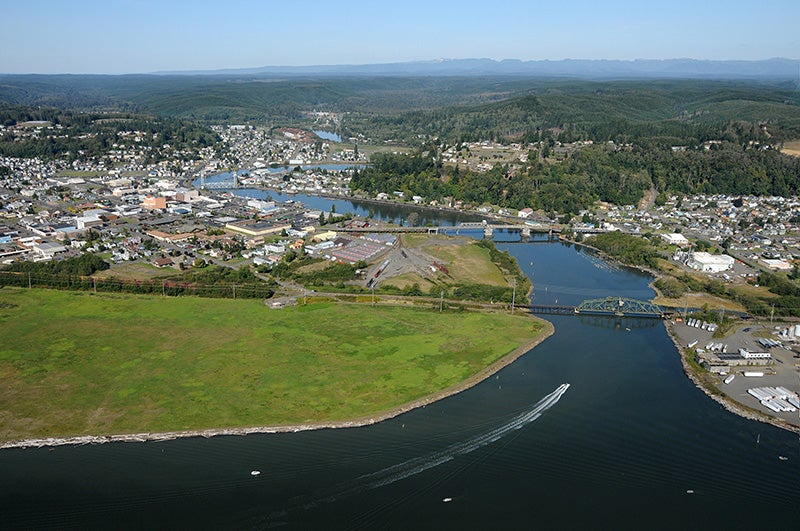Comments Critical of Crude by Rail Terminals Left Out of Environmental Review
Leaders of the Quinault Indian nation, local fishermen and environmental groups condemn the omission of at least 32 substantial comments on a controversial project at Grays Harbor
Contact
Leaders of the Quinault Indian Nation, Washington Environmental Council, the Washington Dungeness Crab Fishermen’s Association, Willapa/Grays Harbor Oyster Growers Association and retired oyster grower Brady Engvall condemned the omission of their input into the environmental review process for proposed crude-by-rail terminals in Grays Harbor, Washington.
During review of the draft environmental impact statements, the Quinalt Indian Nation represented by Earthjustice and the rest of the groups discovered that their extensive scoping comments submitted in 2014 were not included in a final scoping report prepared by ICF International, the consultant hired by the City of Hoquiam and the Washington State Department of Ecology. Nor have any scoping comments been made publically available on the website created for the projects, in contrast to other controversial projects in the state.
“The public deserves to understand the full suite of impacts identified during the scoping period, and no one can do that when extensive comments are hidden and ignored,” said Fawn Sharp, President of the Quinault Indian Nation. “This process must be accountable and transparent, so we can trust that our next comment letters and analysis won’t also be tossed aside.”
The crude oil terminal proposals by Westway and REG (formally Imperium) face intense public opposition. At least 32 substantial scoping comment letters were left out of the scoping comment report—the report that summarizes input from the public that influenced what areas and issues were analyzed in the documents.
“These projects bring great risk to our fishing industry here in Grays Harbor, yet there is no recognition of our concerns and no true reflection of these impacts in the draft reviews,“ said Larry Thevik, Washington Dungeness Crab Fishermen’s Association. “It is a very serious flaw in the process that the comments submitted by the projects’ primary opponents were left out.”
“This failure has resulted in deficiencies in the draft environmental impact statements,” said retired oyster grower Brady Engvall. “It is a slap-in-the-face to those who will be affected most if one of these projects results in a major oil spill.”
The groups call for Ecology and the City of Hoquiam to immediately post all the scoping comments on the public website. Once posted, the current draft environmental impact statement comment period should be extended for an additional 30 days to allow for review and incorporation of all serious concerns that these projects raise.
The comments from Climate Solutions, Spokane Riverkeeper, Forest Ethics and Friends of the Columbia Gorge were also omitted.
“The draft Environmental Impact Statements, as they stand, do not reflect the input from many who will be seriously impacted if these proposals go forward,” said Rebecca Ponzio of Washington Environmental Council. “The impacts these oil terminals will have are serious and long-lasting. The evaluations need to take that into account.”

Additional Resources
About Earthjustice
Earthjustice is the premier nonprofit environmental law organization. We wield the power of law and the strength of partnership to protect people's health, to preserve magnificent places and wildlife, to advance clean energy, and to combat climate change. We are here because the earth needs a good lawyer.